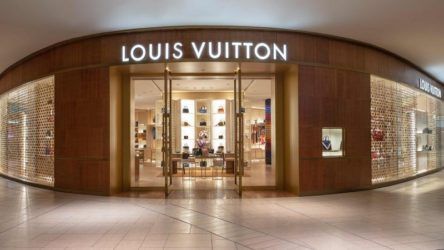LVMH Moët Hennessy Louis Vuitton SE, the global luxury giant, saw its shares plunge after reporting a drop in sales of fashion and leather goods.
This marked the first decline since the pandemic, underscoring the severity of slowing demand from Chinese consumers, once a driving force for the luxury industry.
LVMH reported a 5% decline in organic revenue from its key fashion and leather goods division in the third quarter, the weakest performance since the height of the pandemic in 2020.
The company’s portfolio includes renowned brands such as Louis Vuitton and Christian Dior.
Shares of LVMH dropped by as much as 7.5% during Wednesday’s Paris trading, bringing its year-to-date losses to 21%.
The slump wiped approximately $33 billion off the market value of LVMH and other luxury giants such as Hermès, Richemont, and Kering.
Consumer confidence hits new lows in China
Jean-Jacques Guiony, LVMH’s Chief Financial Officer, acknowledged the growing economic challenges across the company’s markets, with China being a significant concern.
“Consumer confidence in mainland China is back to the all-time low reached during the COVID-19 pandemic,” Guiony noted during LVMH’s quarterly presentation.
The company’s organic sales in China’s regional market declined by 16% during the quarter, surpassing analyst expectations of a smaller contraction.
This decline reflects how challenging the environment has become for a group that previously remained resilient amid cooling consumer sentiment in China.
Citigroup analysts highlighted in a recent note that their checks with a luxury mall in Eastern China during the Golden Week holiday revealed no significant improvement in luxury spending despite recent government stimulus efforts.
China’s stimulus measures fall short of boosting consumption
In an attempt to stabilize the economy, Beijing has rolled out a series of stimulus measures focused on the stock market and the struggling property sector.
However, these efforts have yet to produce any noticeable increase in consumer spending, a critical element for the luxury sector’s recovery.
While Guiony acknowledged the Chinese government’s seriousness in addressing economic issues, he stated it remains difficult to predict how these measures will impact future demand.
The weak performance has raised concerns ahead of the third-quarter earnings season and two crucial shopping periods—Christmas and Chinese New Year.
Outlook remains uncertain for the luxury market
LVMH’s weak third-quarter results highlight the challenges facing the luxury sector, which must now navigate both economic volatility and shifting consumer behavior.
Analysts suggest that the broader financial uncertainty, combined with reduced spending power in China, could pose significant hurdles for the industry in the coming months.
As China remains a critical market for luxury brands, the upcoming shopping seasons will be a litmus test for whether Beijing’s stimulus efforts can revive consumer spending and restore some momentum for LVMH and its peers.
The post LVMH shares fall as Chinese consumer confidence weakens appeared first on Invezz

